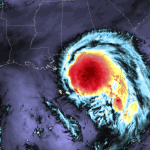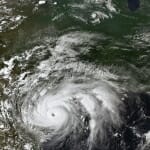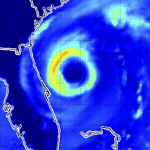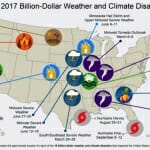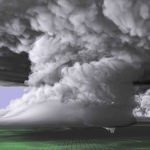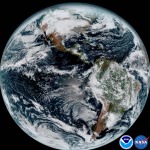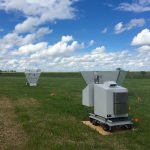Tag Meteorology
Kutzbach’s role in climate science ‘expansive and foundational’
John Kutzbach, an emeritus professor in the Department of Atmospheric and Oceanic Sciences, died Jan. 29. His contributions “helped all of us better understand important aspects of our universe — in particular, those of the Earth’s climate system."
Trends in hurricane behavior show stronger, slower and farther-reaching storms
Global trends suggest hurricanes are getting stronger, moving more slowly over land, and deviating farther north and south of the equator. With these changes come stronger winds, increased flooding, and risks posed to cities that historically have not been hit by these types of storms.
40 years and counting, NOAA renews partnership with UW
CIMSS is recognized internationally for its satellite expertise, spanning geostationary and polar-orbiting platforms. This network of satellites forms the backbone of a global observing system developed to monitor our planet and ensure public safety.
Long-term data show hurricanes are getting stronger
In almost every region of the world where hurricanes form, their maximum sustained winds are getting stronger. A warming planet may be fueling the increase.
NOAA plan to improve weather forecasting includes UW–Madison
NOAA cooperative institutes, like the University of Wisconsin–Madison Cooperative Institute for Meteorological Satellite Studies (CIMSS), play a key role in mitigating weather-related losses by increasing innovation and research opportunities.
A scientist and a supercomputer re-create a tornado
Scientists have created a detailed simulation of a tornado-producing supercell thunderstorm that left a path of destruction over the central Great Plains in 2011.
GOES-16 offers Earth’s first light in true color
After spending months in space, quietly orbiting the Earth, the next-generation geosynchronous satellite has broken its silence and sent back its first images, with help from UW–Madison.
New UW–Madison project funded by NOAA could improve weather forecasting
Weather balloons better watch their backs. A new weather forecasting tool could soon find itself part of the day-to-day operations of the National Weather Service, and UW–Madison researchers are testing it.



